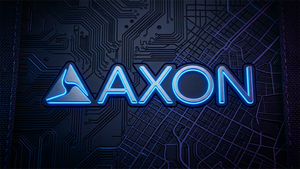
The technology sector is once again proving to be the undisputed engine of the S&P 500, with robust growth fueled by an insatiable appetite for artificial intelligence. As of November 19, 2025, tech stocks, particularly those deeply entrenched in the AI revolution like Nvidia (NASDAQ: NVDA), are significantly outperforming the broader market, driving the overall index higher. This surge comes at a critical juncture, with investors keenly awaiting a slew of key earnings reports that are expected to provide further clarity on the sustainability of this AI-driven rally.
This current market dynamic underscores the profound impact of technological innovation on financial markets. The impressive gains in tech are not merely speculative; they are underpinned by massive capital expenditures in AI infrastructure and the transformative potential of advanced AI models across industries. However, the market also grapples with "pre-earnings jitters" and concerns over elevated valuations, setting the stage for a high-stakes earnings season that could dictate the market's trajectory into the new year.
Unpacking the Tech-Led Market Ascent
The S&P 500 Technology Sector has demonstrated remarkable resilience and growth, consistently outpacing the overall S&P 500 index throughout 2025. By November, the technology sector had achieved an indexed value near 130, significantly ahead of the S&P 500's position below 115. This widening performance gap highlights the sector's outsized influence, accounting for approximately 34.45% of the S&P 500's weighting as of August 2025. Year-to-date, while the S&P 500 has gained over 16%, the technology-heavy Nasdaq Composite has surged nearly 22%, cementing tech's leadership role.
At the heart of this rally are the "Magnificent Seven" tech giants, with their substantial investments in AI and cloud infrastructure acting as primary catalysts. Among them, Nvidia stands out as the unequivocal leader and a bellwether for the entire AI industry. As of today, November 19, 2025, Nvidia has claimed the title of the world's most valuable company, boasting an astonishing market capitalization of approximately $4.5 trillion. Its stock alone commands roughly 8% of the S&P 500, illustrating its immense leverage over major indices.
The market's immediate sentiment on November 19, 2025, reflects a cautious optimism. After some recent declines across the S&P 500 and Nasdaq Composite, a modest recovery is observed as investors brace for upcoming corporate earnings. The most anticipated event is Nvidia's fiscal Q3 2026 earnings report, scheduled for release after market close today. Investors are not just looking at the numbers but are eagerly awaiting forward-looking guidance from CEO Jensen Huang to assess the future of the AI boom.
Companies Riding the AI Wave and Those Watching Closely
Nvidia (NASDAQ: NVDA) is undeniably the prime beneficiary of the current AI-driven market. Its stock has surged nearly 40% this year, approximately three times the gain of the benchmark S&P 500 index. This exceptional performance is a direct result of the unprecedented demand for its high-performance AI chips and related hardware, which are indispensable for training and deploying advanced AI models. Any significant movement in Nvidia's shares sends ripples across the market, affecting not only its direct competitors but also a vast ecosystem of partners and customers.
Beyond Nvidia, other companies deeply integrated into the AI supply chain are also experiencing robust demand. Seagate Technology (NASDAQ: STX), a leader in data storage solutions, and Vertiv Holdings (NYSE: VRT), which provides critical cooling systems for data centers, have reported strong outlooks directly attributable to the AI boom's demand for data infrastructure. Similarly, Broadcom (NASDAQ: AVGO) is well-positioned for growth, benefiting from accelerating AI and software revenues. These companies represent the broader base of winners in this current climate, as the AI revolution necessitates significant investments in hardware, infrastructure, and specialized software.
Conversely, companies that have yet to fully integrate AI into their core strategies or those in sectors less directly impacted by AI infrastructure build-out might find themselves lagging. While the overall corporate earnings season has been generally solid, with many S&P 500 companies exceeding estimates, the disparity in performance between AI-centric tech firms and others could widen. The upcoming earnings reports will provide a clearer picture of which companies are successfully navigating and capitalizing on the AI paradigm shift, and which might face challenges in adapting to the new technological landscape.
Wider Significance and Broader Market Implications
The current surge in the technology sector, spearheaded by AI, is more than just a fleeting market trend; it represents a significant structural shift in the global economy. This event fits squarely into broader industry trends emphasizing digital transformation, automation, and the increasing reliance on sophisticated data processing capabilities. The massive capital expenditures directed towards AI infrastructure are reshaping industries from healthcare to finance, manufacturing, and logistics, creating new markets and disrupting established ones.
The ripple effects of this AI boom are profound. Competitors are under immense pressure to accelerate their own AI strategies and investments to remain relevant. Partners in the semiconductor, cloud computing, and data center industries are experiencing unprecedented demand, leading to expansion and innovation across their supply chains. Regulatory bodies are also increasingly scrutinizing the rapid advancement of AI, with discussions around potential "AI bubbles," ethical considerations, and market concentration gaining traction. The sheer scale of Nvidia's market capitalization and its influence on the S&P 500 raise questions about market stability and diversification.
Historically, periods of rapid technological advancement have often been accompanied by intense market speculation. While comparisons to the dot-com bubble of the late 1990s are frequently drawn, many analysts argue that today's AI growth is underpinned by more tangible technological advancements and immediate commercial applications. Nevertheless, the discussions around potential overvaluation and the concentration of market gains in a few dominant players evoke memories of past market frenzies, necessitating careful monitoring by investors and regulators alike.
What Comes Next: Navigating the AI Frontier
The immediate future of the market, particularly the technology sector, hinges significantly on the outcome of the upcoming earnings reports, most notably Nvidia's fiscal Q3 2026 results and its subsequent guidance. Short-term market movements will be heavily influenced by whether these tech giants can meet or exceed the elevated expectations of investors. Positive outlooks and strong revenue forecasts for AI-related products and services could further fuel the rally, while any signs of slowdown or cautionary guidance could trigger market corrections.
In the long term, the sustainability of the AI-driven rally depends on continued innovation, successful commercialization of AI technologies, and the ability of companies to translate AI investments into tangible revenue and profit growth. Strategic pivots and adaptations will be crucial for companies across all sectors. Those that successfully integrate AI into their operations, enhance productivity, and create new AI-powered products and services will likely thrive. Conversely, businesses that fail to adapt risk falling behind in an increasingly AI-centric economy.
Market opportunities will continue to emerge in various segments of the AI ecosystem, including specialized hardware, AI software platforms, data services, and AI ethics and security solutions. However, challenges such as intense competition, high R&D costs, and the need for a skilled AI workforce will also be prevalent. Potential scenarios range from a continued, albeit volatile, AI-led bull market to a more significant correction if valuation concerns outweigh fundamental growth, or if regulatory headwinds intensify.
Wrap-Up: The Enduring Impact of AI on Markets
In summary, the strong performance of the Technology Sector in the S&P 500, particularly driven by AI powerhouses like Nvidia, is the defining market narrative of late 2025. This surge reflects a fundamental shift towards an AI-first economy, where innovation in artificial intelligence is directly translating into significant market gains. Nvidia's unprecedented market capitalization and its pivotal role in the S&P 500 underscore the immense investor confidence in the future of AI.
Moving forward, the market will remain highly sensitive to earnings reports and forward-looking guidance from leading tech companies. While the current corporate earnings season has been generally positive, the heightened valuations in the tech sector necessitate a cautious yet optimistic outlook. Investors should continue to watch for key indicators such as AI chip demand, cloud infrastructure spending, and the broader adoption rates of AI technologies across industries. The long-term impact of AI is expected to be transformative, but the short to medium-term market journey will likely be characterized by periods of both rapid growth and increased volatility as the market digests new information and assesses the true potential and risks of this technological revolution. The insights from Nvidia's earnings call today will undoubtedly set the tone for the coming months.
This content is intended for informational purposes only and is not financial advice





